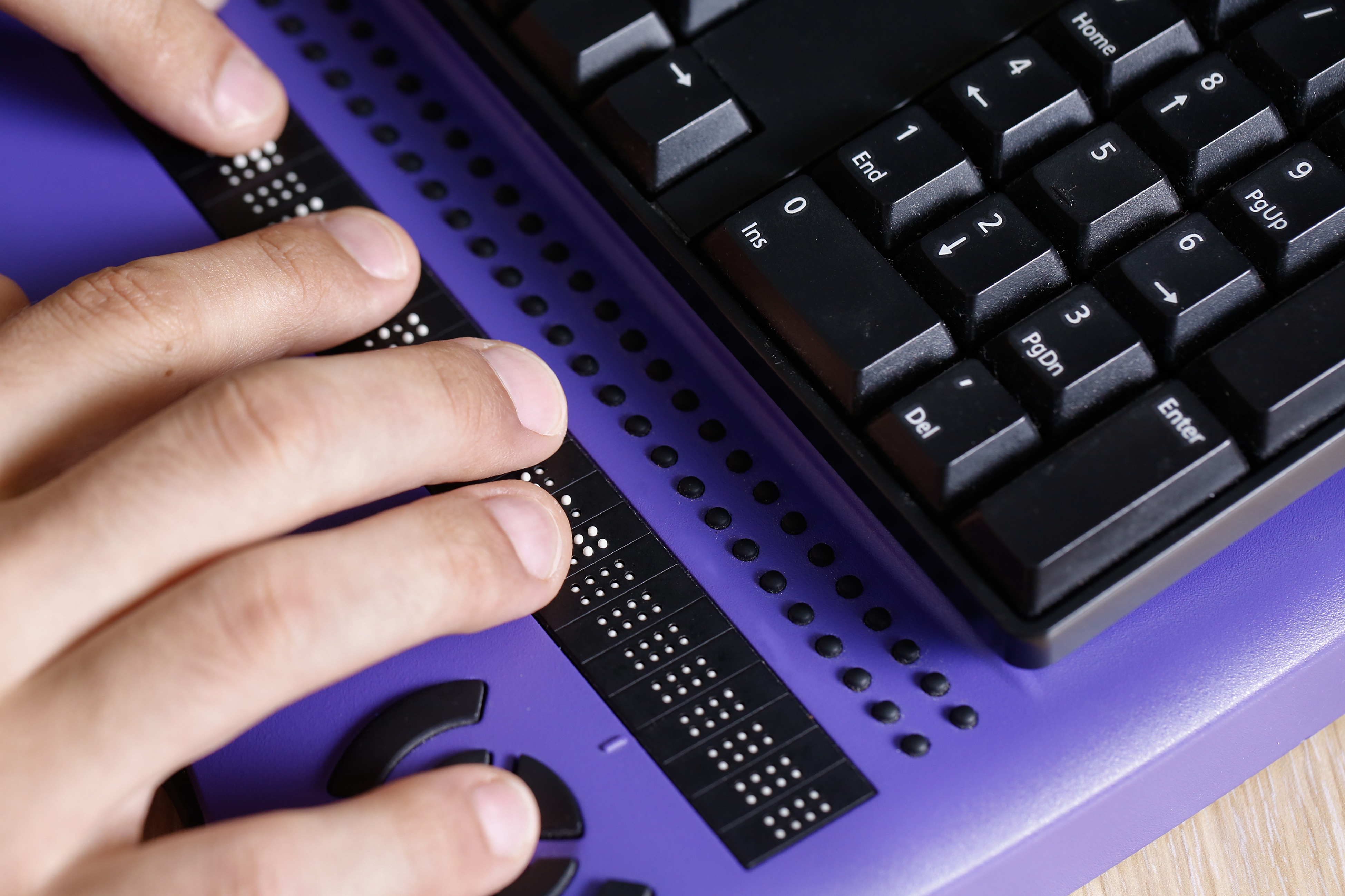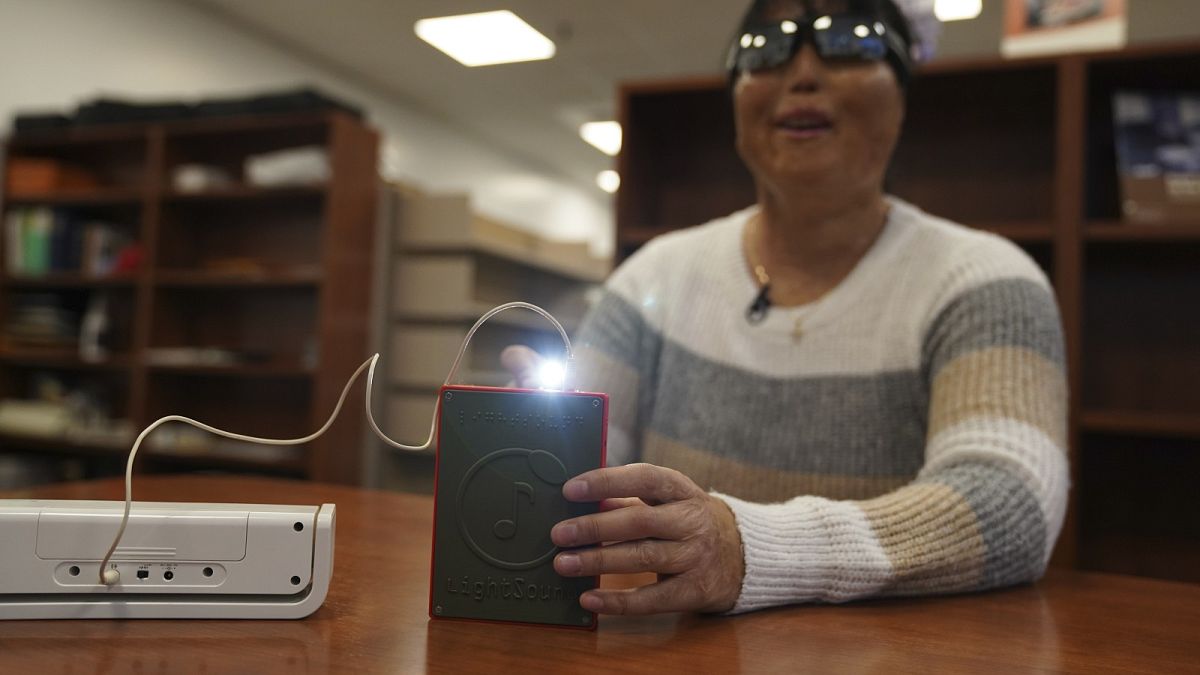Empowering Freedom With Assistive Modern Technology for the Blind
The assimilation of assistive modern technology right into the lives of people with aesthetic disabilities represents a significant improvement in advertising freedom and self-sufficiency. From ingenious screen visitors to innovative smart canes, these devices not just boost day-to-day navigating and interaction yet additionally equip users to involve meaningfully in different elements of life. As we explore the myriad advantages and real-world applications of these modern technologies, it ends up being critical to check out the hidden elements that add to their efficiency and the potential for future growths in this important field.
Overview of Assistive Modern Technology

The growth of assistive technology is grounded in concepts of inclusivity and empowerment. Advancements in software application, hardware, and sensory improvements supply users with choices customized to their certain requirements. From display visitors that convert message to speech, to responsive devices that share details via touch, these devices transform the method individuals engage with their environments.
Along with useful applications, assistive innovation fosters better social incorporation and participation in different fields, consisting of education and employment (Wearable technology for low vision). As r & d continue to evolve, the potential for assistive modern technology to better boost the lives of aesthetically impaired individuals continues to be encouraging, leading the way for a more equitable society where every person can prosper
Kinds Of Assistive Instruments
A variety of assistive devices have emerged to sustain people with aesthetic impairments, each made to satisfy specific requirements and enhance daily functioning. These devices vary from low-tech services to modern advancements, offering diverse choices for users.
Low-tech gadgets consist of magnifiers and large-print products that help in reading and writing. Braille tools, such as Braille slates and stylus pens, enable tactile analysis and communication. Alignment and flexibility help, like white walking canes, assist individuals browse their environment securely.
On the greater end of the spectrum, digital magnification systems and screen readers provide considerable support. Electronic magnifiers permit users to enlarge message and images on screens, while display readers transform digital content into synthesized speech, facilitating access to details on computer systems and mobile phones.
Mobile phone applications also play a vital role, providing functions like message recognition and navigation assistance. Wearable modern technology, such as clever glasses furnished with increased fact, is becoming a promising tool to enhance situational awareness.
Benefits of Assistive Modern Technology
The integration of assistive modern technology dramatically boosts the high quality of life for individuals with aesthetic impairments. These modern technologies encourage individuals by promoting self-reliance, allowing them to navigate their atmospheres better and do day-to-day jobs with greater simplicity. For example, display readers and zoom software application enable individuals to access digital info, fostering instructional and expert possibilities that might have formerly been out of reach.
In addition, assistive tools such as smart walking sticks and general practitioners applications supply real-time navigation support, boosting mobility and safety and security. This boosted freedom not only boosts self-esteem yet also encourages social involvement, permitting users to get involved even more fully in their communities.
Assistive modern technology also helps with communication, assisting customers get in touch with others with voice acknowledgment and text-to-speech applications. This capacity is crucial for keeping connections and accessing crucial information.
Additionally, the customization options available with numerous assistive innovations ensure that customers can tailor gadgets to their particular needs, even more boosting usability and performance. On the whole, the advantages of assistive innovation for people with aesthetic problems are extensive, advertising an extra comprehensive society where everybody can pursue their objectives and ambitions.
Study and Success Stories
Highlighting the transformative influence of assistive modern technology, countless case researches illustrate just how individuals with aesthetic disabilities have efficiently incorporated these tools into their lives. One engaging example involves an university trainee that made use of display More Help reading software to navigate online sources and academic products properly. This innovation not only promoted her education and learning but likewise boosted her self-confidence in getting involved in conversations and team jobs.
One more case study includes a specialist who employs a smartphone application made for navigating and things recognition. By utilizing this app, he has restored autonomy in both his individual and job environments, permitting him to commute individually and involve with associates extra effectively.
In addition, a retiree shared her experience with braille e-readers, which allowed her to access a large array of literature and stay connected with her neighborhood with book clubs.
These success stories highlight the important duty of assistive modern technology in promoting freedom, boosting lifestyle, and promoting social integration for individuals with aesthetic disabilities (Assistive technology for the blind). By accepting these cutting-edge tools, customers can get over difficulties and confiscate opportunities that contribute to their individual and professional gratification

Future Fads in Assistive Innovation
Development in assistive technology is poised to redefine the landscape of support for people with aesthetic impairments. Arising fads emphasize the combination of expert system (AI) and artificial intelligence, which boost the capability of devices that help with navigation and details accessibility. AI-driven applications are now qualified of interpreting visual information in real-time, making it possible for users to involve with their atmosphere more separately.
Furthermore, the advancement of wearable modern technology click this site is progressing quickly. Smart glasses equipped with increased fact (AR) can provide audio descriptions of environments, transforming exactly how customers connect with public spaces. These devices not only promote freedom yet also foster social addition.
Furthermore, the Internet of Things (IoT) is making homes smarter, permitting smooth connection in between daily appliances and assistive devices. This connection empowers customers by making it possible for automatic feedbacks and voice-activated controls customized to private demands.
Verdict
In conclusion, assistive technology plays a crucial function in encouraging people with aesthetic disabilities by boosting their freedom and engagement with their surroundings. The diverse array of applications and devices offered not just promotes navigation and interaction but additionally promotes social assimilation and opportunities for specialist and personal development. As developments continue in this field, the potential for boosting the top quality of life for those with aesthetic impairments will certainly increase, promoting higher autonomy and empowerment.
